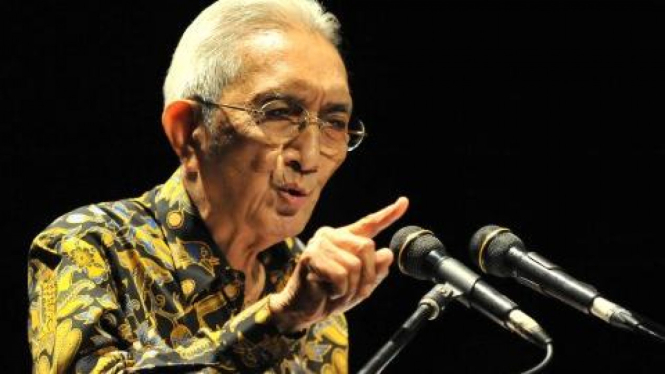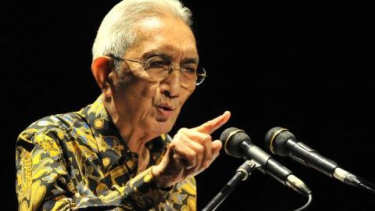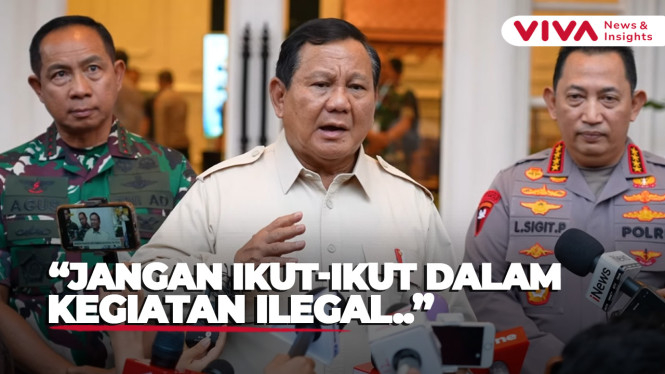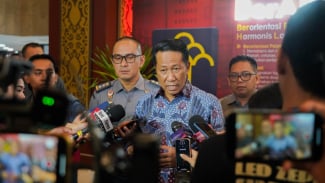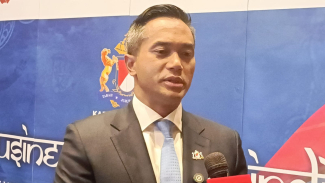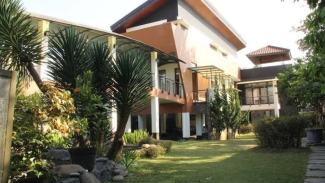Day of Remembrance: 100 Years of Rosihan Anwar
- Antara/ Fanny Octavianus
VIVA – One hundred years ago, a journalist, historian, and humanist, Rosihan Anwar was born. He was also awarded the Mahaputra III Star.
The legend Rosihan was born in West Sumatra, on May 10, 1922. Families and friends celebrated the Century of Rosihan Anwar. There are a number of activities held online, ranging from prayers, tahlil, and stories about Rosihan on May 10, 2022.
Rosihan is the fourth of ten children, the couple of Anwar Maharaja Sutan and Siti Safiah. His father was a demang in Padang, West Coast of Sumatra.
He completed public school and junior high school of MULO in Padang. Then, he continued his education at AMS-A in Yogyakarta, now known as 1 Yogyakarta SHS.
Then, Rosihan took part in various trainings at home and abroad. Some places abroad that Rosihan has visited for training are Yale University and the School of Journalism at Columbia University, New York City, United States.
Rosihan started his career as a journalist at the age of 20. It was the period of Japanese occupation in Indonesia. The beginning of his struggle began to liberate Indonesia from all forms of colonialism and oppression from foreign nations and their own people.
Rosihan started his journalistic career as a reporter in Asia Raya during the Japanese occupation in 1943. From 1945 until 1946, he was the editor of Harian Merdeka. Rosihan was also the founder and was editor-in-chief of Siasat magazine from 1947 to 1957 and Harian Guidelines from 1948 to 1961 and 1968 to 1974.
As a journalist, Rosihan has carved out many historical moments for Indonesia. One of them was when he rode a motorbike with Suharto, who at that time was still a Lieutenant Colonel, met General Sudirman to prepare for the March 1, 1949 Oemoem Attack in Yogyakarta.
In the history of the National press, Rosihan co-founded the PWI in Solo on February 9, 1946. In his career as a journalist, Rosihan was known as the head of the press and the Ayatollah Reporter of Indonesia.
Then, during the New Order, he served as General Chair of the Indonesian Journalists Association (PWI) from 1968 to 1974. In writing, no one could stop Rosihan, except God. In fact, he was imprisoned because of his struggle during the Japanese occupation at that time.
Not only writing for the mass media, Rosihan also gave birth to many books. For example, his last book, A Little History of "Petite Histoire" Indonesia: Volumes 1-4.
The Soekarno and Suharto regimes only managed to kill their newspaper, Harian Guidelines, but the two great Indonesian leaders could not 'beat them'. He continues to carry out his work as a journalist, criticizing the regime of whoever runs the government in Indonesia. On April 14, 2011, Rosihan stopped writing.
Rosihan passed away on Thursday morning in Jakarta. He died less than a month before his 89th birthday. He was suspected of having a heart problem and was buried in the Kalibata Garden Tomb of Heroes, South Jakarta.
Here are Rosihan Anwar's career journey in the films:
In 1950, Rosihan Anwar and Usmar Ismail founded the National Film Company, known as Perfini.
He then produced several films. In his first film titled 'Blood and Prayer', Rosihan also appears as one of the extras. He later became the producer of the film 'Accept My Song'. Since late 1981, he promoted Indonesian films abroad and remained a film critic until the end of his life.
Rosihan Anwar Career Achievements:
1. In 1947 founded and led the weekly newsletter Siasat (1947-1957), founded and led the daily Guidelines in 1948-1961 and 1968-1974, and lastly became editor-in-chief of Citra Film (1981-1982).
2. He was a correspondent for the Hindustan Times, New Delhi, India (968-1969), World Forum Features, London, England (1966-1968), Asian weekly magazine, Hong Kong (1970-1971), Asia week, Hong Kong (1979), The Age (Melbourne, 1967-1968), columnist and newspaper reporter for The Straits Times, Singapore (1976-1981), The New Strait Times, Kuala Lumpur, Malaysia (1976-1981), and editor for Indonesia's Asia-Pacific magazine.
3. In Indonesia, Rosihan Anwar is listed as a columnist for the Bulletin of Business News, Jakarta (1963); Kompas newspaper, daily Us, and the Armed Forces, Jakarta (1966-1968); Pos Kota newspaper, Kartini magazine, and Selecta magazine, Jakarta; The People's Mind newspaper, Bandung; Medan Alert; Bow Padang, Lampung Post Bandar Lampung; Sovereignty of the People of Yogyakarta, Surabaya Pos, Bali Post, Banjarmasin Post, and Makassar People's Guidelines.
4. In his career as a journalist, Rosihan was the General Chairperson of the Central PWI (1970-1973), the Chairperson of the Trustees of the Central PWI (1973-1978 and 1978-1983); Chairman of the Central PWI Honorary Council (1983-1988), Director of the Central PWI Journalist Training Program, member of the Expert Team of the National Defense Institute (1973-1974), member of the Management of the Indonesian Manpower Foundation (1969), member of the Staff of the Center for Human Resources Development, member Asia Mass Communication Research and Information Center (Singapore, 1971), member of the MPR for the Golkar faction (1973-1978), member of the National Film Council, and UNESCO consultant who served in Sri Lanka (1980).
5. Between 1963-1968, he worked for a private company engaged in shipping machinery, Indo Marino, Jakarta. He has been involved in the world of film and drama since 1944. Together with Usmar Ismail he formed the Maya amateur play group.
6. Then in 1950, founded his own film company called Perfini. The first film he worked on was Blood and Prayer. Several other films were Again Crisis (1956), Big Village (1970), Karmila (1975), and Tjoet Nja' Dien (1987-1988), as well as the play Court (1989).
7. Since 1977 he has been a member of the National Film Council (DFN). In 1986-1989, he served as Chairman of the Board of Trustees of the Association of Indonesian Film Companies and Chairman of the Honorary Council (1989-1992).
